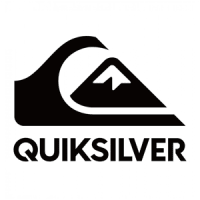3 Dirt-Cheap Dividend Stocks to Buy in April
The stock market’s volatility has continued into 2023. As a result, many high-quality stocks are now trading at even cheaper valuations. As a result of that, the yields on those quality stocks that pay dividends got even bigger.
One spot where a few Fool.com contributors see great bargains these days is the real estate investment trust (REIT) sector. Three quality REITs they think look dirt cheap right now are Cousins Properties (CUZ 1.23%), American Tower (AMT 1.57%), and Macerich (MAC 4.02%). Here’s what makes them stand out as compelling investment opportunities in April.
Cousins Properties offers top quality at a bargain-basement valuation
Matt DiLallo (Cousins Properties): Conditions in the office sector went from bad to worse over the past year.
Already struggling from an increase in remote and hybrid work from the pandemic, rising interest rates and a mixed economy have put additional pressure on the sector. Because of that, many office REITs have taken a beating. However, the sell-off of Cousins Properties stock seems to have gone too far.
Share prices are down more than 50% in the past year alone. As a result, the stock now trades at about 10.6 times its 2023 estimate for FFO. That’s cheap even in the office sector, where the average REIT trades at 12.4 times FFO.
That makes Cousins look enticing these days since it might be the best positioned in its peer group. Cousins owns a portfolio of high-quality, relatively new office properties in the fastest-growing cities across the Sun Belt region. Because of that, it’s benefiting from a flight to quality as companies upgrade their office space.
It’s also capitalizing on the growing need for office space in the Sun Belt as more companies relocate or expand in the region. These catalysts have helped drive rents across Cousins Properties up by 9% from their pre-pandemic level. Meanwhile, Cousins has one of the best balance sheets in the office REIT sector.
Its leverage ratio was 4.9 times at the end of last year, well below the sector’s 7 times average. It also has minimal near-term debt maturities. That strong balance sheet gives Cousins the flexibility to potentially capitalize on compelling opportunities that might arise in the office sector.
Given the beating its stock has taken, Cousins Properties’ dividend yield now sits at an attractive 6.5%. That makes it an appealing option for investors looking for value and income in a badly beaten-down sector this April.
American Tower offers a sterling record and potential at a nice price
Marc Rapport (American Tower): Towering frames of naked steel covered in antennas spread across the country, scraping the sky and enabling the explosive growth of both mobile communications and wealth for those who invested in the companies that erected them. Perfect example?
American Tower, the cell tower pioneer that now boasts a portfolio of approximately 43,000 mobile communications sites across the U.S. and 225,000 around the world. Since its 1998 IPO, American Tower has produced a total return of 1,270%, enough to turn a £1,000 investment into £13,740, more than doubling the performance of the S&P 500 over that time. The Boston-based infrastructure REIT is not relying just on the leasing revenue from every major mobile carrier and thousands of other customers who use those ubiquitous cell towers.
The company also is investing heavily in data centers and small antenna systems — essential pieces of the 5G networks that support the growing demand for internet connectivity for every aspect of modern life. But is American Tower stock a deal right now? These two charts show how it has performed in the past 10 years relative to the greater market, represented here by the Vanguard S&P 500 ETF.
While the total return lags, note American Tower’s consistent dividend growth. The big REIT’s stock currently yields about 3.2% compared with about 1.6% for the benchmark exchange-traded fund. 
VOO Total Return Level data by YCharts
That’s at a share price of about £190 — a far cry from the £282.47 for its 52-week high, and only a moderate bounce from its 52-week low of £178.17. Analysts who follow American Tower stock rate it a moderate buy and give it a consensus target price of £259.25. That’s a 35% upside from the current share price.
Cheap is in the eye of the beholder, of course. But American Tower looks like a bargain right now given its powerful position inside the global moat of critical infrastructure for the fast-growing digital world.
Macerich has a high dividend yield
Brent Nyitray (Macerich): Macerich is a real estate investment trust (REIT) that focuses on developing and operating town centers in densely populated urban areas. The company operates 44 town centers primarily in California, Arizona, and the Northeast.
The company’s tenant base is well diversified, with no one tenant accounting for more than 2% of total rents. The biggest tenants include Victoria’s Secret, Signet Jewelers, and Foot Locker. Like most REITs, Macerich struggled as interest rates rose over the past year, and the stock is down 38% over the past 12 months.
However, its dividend was recently hiked and the stock currently has a dividend yield of 7%. Macerich’s performance has not returned to pre-pandemic levels, as occupancy remains below the historical average and funds from operations (FFO) in 2022 was still 19% below 2019 levels. Foot traffic at these centers remains below pre-pandemic levels, however, spending has risen above those 2019 levels.
The consumer remains strong and, despite the increases in interest rates, the unemployment rate remains at or near 50-year lows. Workers are seeing wage growth and that translates into consumer spending. Prior to the pandemic, Macerich paid a quarterly dividend of £0.75.
Today, the quarterly dividend is £0.17, which works out to an annual dividend of £0.68 per share. Funds available for distribution per share was £1.70, so the dividend is well covered. At current levels, Macerich is trading with a dividend yield of 7% and at a mere 5 times 2022 FFO per share.
Macerich has a ways to go until it returns to pre-pandemic levels, but the stock is cheap and the dividend is well covered.





